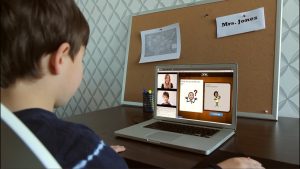Literacy is an essential skill for childhood development, academic achievement, and school success. Literacy includes reading, writing, spelling, and listening abilities. Any difficulties or areas for improvement can be identified and targeted by a Speech-Language Pathologist (SLP). Specific goals could include:
- Reading comprehension
- Auditory comprehension
- Spelling
- Phonemic awareness
- Writing skills
- Decoding and encoding
- Reading fluency
- And vocabulary development
Within each area, SLPs have a wide range of knowledge, expertise, and resources to remediate these abilities!
These cognitive difficulties can inhibit a child’s academic abilities and if left untreated can lead to complications with behaviour, social interactions, mental health, and ultimately school failure. Later in life, this could cause poor employment prospects, limited life skills and opportunities. Early intervention is key to remedy these difficulties and equip your child with the necessary strategies to be successful.

Teletherapy is online video therapy where you and your child interact with a clinician in real-time via a secure, HIPPA compliant, video-conferencing platform. Teletherapy has been proven to show very similar results as face-to-face approaches and gives access to quality health care services. Teletherapy sessions allow for audio, visual and verbal interactions from the comfort and convenience of your own home.
Assessment via Teletherapy?
Wondering if therapy could be helpful for your child but they have not yet been assessed? Do not worry! The research shows mounting positive results for the validity and reliability of remote assessments for speech, language and literacy disorders.

Through this real-time interaction; clinicians can interact with your child in critical ways throughout the assessment. The clinician is able to monitor your child’s the concentration/attention levels, gain more information about your child’s capabilities, probe different levels or areas of concern, and administer breaks when necessary.
Utilizing these teletherapy capabilities ensures a thorough, comprehensive assessment of your child’s reading, writing, and literacy abilities. Assessments that have been studied and shown to be effective via teletherapy include literacy, spelling, reading, and phonological awareness and applicable subtests.
What Does Teletherapy Entail?
Once your child has been assessed, if therapy is recommended, you may be wondering what teletherapy would look like for you and your family. Teletherapy looks very similar to face-to-face intervention. There is a scheduled appointment time where both the client and the clinician sign on to the video-conferencing platform.
During this time the clinician will facilitate the session using different activities and tasks to target your child’s specific literacy goals. However, with younger children, this is often disguised as play activities. SLPs are masters at sneaking specific goals and targets into fun, exciting, engaging exercises.
As teletherapy continues, clinicians will tailor their approach to successfully engage your child. This may incorporate real objects, activities, and games that are based on your child’s interests. Teletherapy allows the clinician to monitor your child’s skills and progression and quickly change goals or targets as necessary. Using a technological device has also been reported to be an asset in teletherapy as children find this delivery method to be enjoyable, engaging and motivating.
Teletherapy also allows for more frequent regular session times for therapy to occur as sessions can be conducted in the convenience of your own home. Lastly, parents have the opportunity to actively engage in therapy as well; this has yielded positive correlations to carry over into daily life and generalization of learned literacy skills.
Considerations and Next Steps

With the overall positive results of numerous studies that show teletherapy is an effective, reliable, convenient way to assess and treat reading, writing, and literacy; there is no time like the present! Give us a call at 416-546-3044 for a free 15-minute consultation to explore teletherapy as an option for you.
Related article: Teletherapy… Is It For Me?
Reference:
Edwards, M., Stredler-Brown, A., & Houston, K. T. (2012). Expanding Use of Telepractice in Speech-Language Pathology and Audiology. The Volta Review, 112(3), 227–242. DOI: 10.17955/tvr.112.3.m.704
Fairweather, G., Lincoln, M., & Ramsden, R. (2017). Speech-language pathology telehealth in rural and remote schools: the experience of school executive and therapy assistants. Rural and Remote Health, 17(3). DOI: 10.22605/rrh4225
Molini-Avejonas, D. R., Rondon-Melo, S., Cibelle Albuquerque De La Higuera Amato, & Samelli, A. G. (2015). A systematic review of the use of telehealth in speech, language and hearing sciences. Journal of Telemedicine and Telecare, 21(7), 367–376. DOI: 10.1177/1357633×15583215
Theodoros, D. (2012). A new era in speech-language pathology practice: Innovation and diversification*. International Journal of Speech-Language Pathology, 14(3), 189–199. DOI: 10.3109/17549507.2011.639390
Waite, M. C., Theodoros, D. G., Russell, T. G., & Cahill, L. M. (2010). Assessment of Children’s Literacy via an Internet-Based Telehealth System. Telemedicine and e-Health, 16(5), 564–575. DOI: 10.1089/tmj.2009.0161



